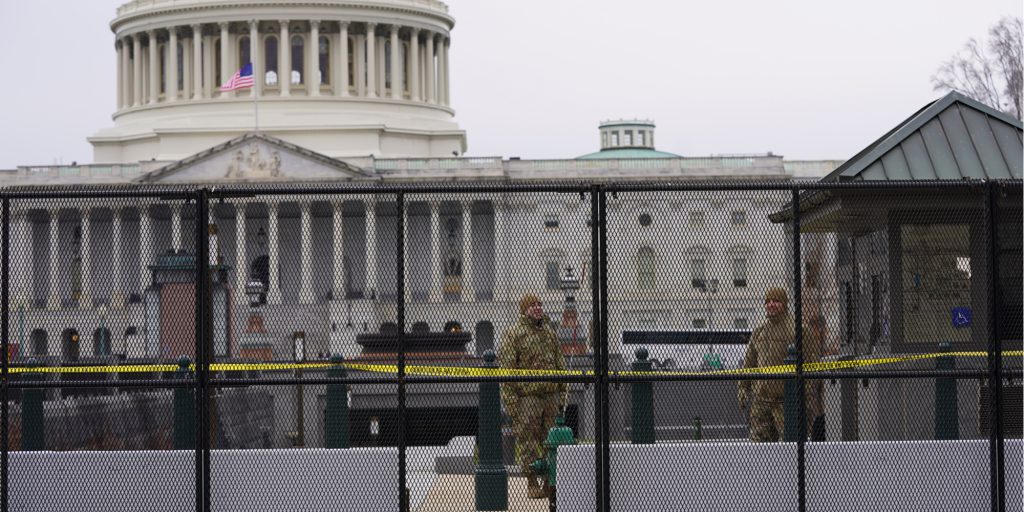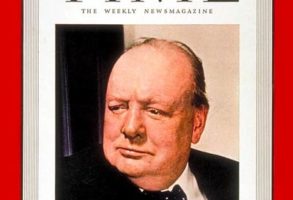
Published January 7, 2021
Leave it to Donald Trump’s brilliant subconscious instinct to top itself and, just at the end of his White House run, to stage a pageant that perfectly expressed his historic effrontery.
The ingredients were complex. The afternoon had a touch of Weimar about it—as if the butch side of Berlin in the 1920s (now represented by the screwballs from Q-anon and their lumberjack pals) had taken to the streets to respond to the pansexual, decadent universe of the Woke. And yet the stage setting (the white-marble wedding-cake Capitol, iconic and confectionery) and not a little of the plot came out of a Frank Capra movie, Mr. Smith Goes to Washington. So that beneath the shock and disgrace of the spectacle (the breaking of windows, the swarming, the penetration of the sanctum), there was a sort of botched innocence, as if the rioters were in fact Jefferson Smith’s Boy Rangers descending upon Washington to save America from the corruption of the Left.
But it did not turn out to be innocent. It turned into a kind of rape. It was possibly understandable (tout comprendre, c’est tout comprendre, as the French don’t say), but it was entirely unforgivable. A woman was shot dead by Capitol police, and three others have died from “medical emergencies.”
F. Scott Fitzgerald said that “personality is an unbroken series of successful gestures.” But personality may equally be a series of unsuccessful gestures. The Trumpian assault on the Capitol was stupendously unsuccessful—and yet, as outrage, as theater, as a gesture of the man himself, you’d have to admit it was perfectly authentic. The word Donald Trump fears above all others is Loser. The House and Senate had gathered to enact a civic ritual in which Trump would be officially—historically—declared a Loser. How could he tolerate that? How could he sit at one end of Pennsylvania Avenue, in the wreckage of his glory, while, at the other end of the avenue, his country, in solemn conclave assembled, pronounced him to be the thing he most despised and could not bear?
And so—an oxymoron—the loser succeeded. In his own way. He created spectacular disruption, and since gaining the world’s attention is the working definition of success in Trump’s world, he succeeded, in those terms, on the very day of his official failure.
I don’t want to be overcomplicated about it, but that is what was going on. That is why, for a few hours—and for what seemed an eternity to the world, as it watched—he refused to send forth the little tweet that might have stopped the monster that he had created and dispatched down to the other end of Pennsylvania Avenue to seek out Pence the traitor and change the reality of the day. To create a new reality.
He certainly did that. But at a terrible price to himself and to the nation. History will remember—it already remembers—January 6 as the day that Donald Trump, the strangest of American presidents, it is fair to say, committed a sort of suicide. In 1960, John Kennedy pronounced a private verdict on his opponent in that year’s election, Richard Nixon. “No class,” said Kennedy. That was about right. Trump, in the gaudy seppuku of January 6, took the possibilities of “no class” into an entirely new dimension. Setting a mob in motion to march down Pennsylvania Avenue to assault, in effect, the Constitution of the United States.
Trump’s defenders—and plenty will go on doing so—say things might have been worse, and that they damned well would have been worse in the counterfactual: that is, if Trump on November 3 had repeated his 2016 feat of eking out an Electoral College victory even while losing the popular vote. Imagine, they say, what riots, what mayhem the American Left would have organized in response to that. If that sounds like an unfair speculation, conjuring leftist mayhem out of nothing, think back to last summer, when the Left was perfecting the details of its street theater—rioting, setting fires, looting, besieging courthouses, occupying police precincts. The compliant media invariably described these as “overwhelmingly peaceful protests”—a journalistic formula, like “far-darting Apollo” or “the rosy-fingered dawn.” They were “overwhelmingly peaceful demonstrations.” Except when they were violent.
After the siege of the Capitol was over, a Trump supporter, while admitting that the thing had been pretty bad, suggested that, for the sake of perspective, I ought to remember the day in 1992 when tens of thousands of Hindus stormed the Babri Masjid mosque in the northern India city of Ayodhya and, because they held the site to be the birthplace of the Hindu deity Ram, demolished the mosque. More than 1,000 people, mostly Muslims, died.
Pondering Ayodhya would not seem much of a consolation to Americans, many of whom still think of their country in terms of the Frank Capra movie.
Did Trump destroy himself on January 6? Did he, as people are saying, cover himself in “infamy”—that absolute word from which there is no appeal? (Franklin Roosevelt described December 7, 1941, as a “date which will live in infamy,” and that drama ended, a few years later, in the absolute gesture of Hiroshima.)
Or did Trump, on the contrary, only augment the myth of himself? I would not be too quick to answer. Seventy-four million Americans voted for Trump, and while some will abandon him now, many will continue to apply the rationale—the Trump Exemption—that they always invoke when they think of him and accept his faults in order to embrace what they see as his strength: Tout comprendre, c’est tout pardonner.





